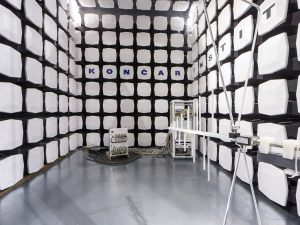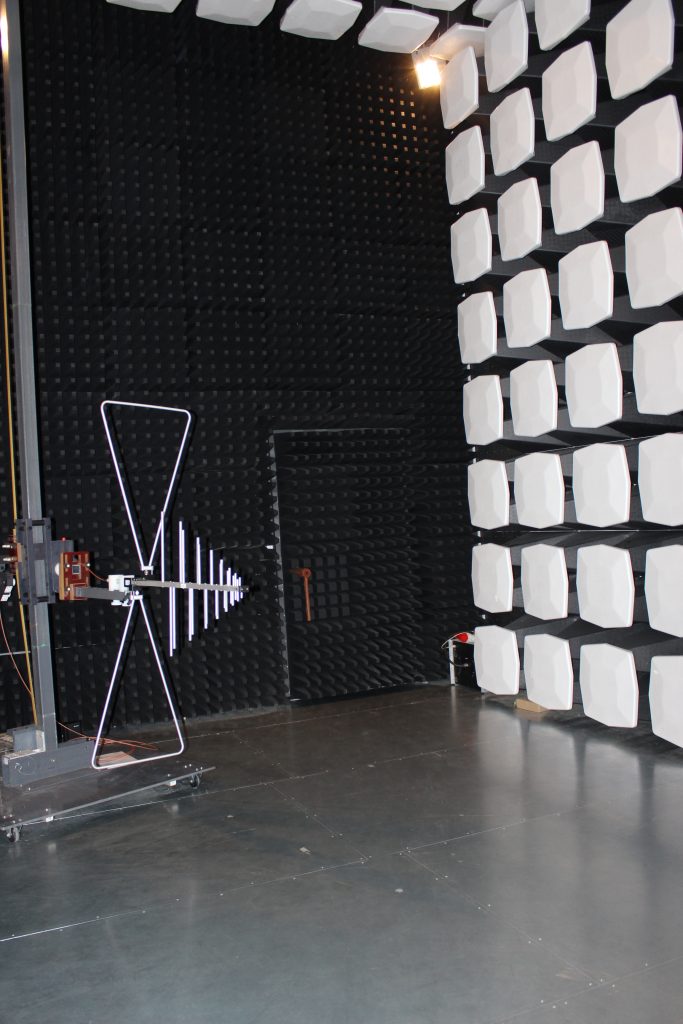 Electromagnetic Compatibility (EMC) is a group of tests that limit disturbances produced by equipment and simulate test reaction of the equipment under the influence of disturbances. Limits and disturbances are simulated and specified for every device through harmonized standards.
Electromagnetic Compatibility (EMC) is a group of tests that limit disturbances produced by equipment and simulate test reaction of the equipment under the influence of disturbances. Limits and disturbances are simulated and specified for every device through harmonized standards.
EMC is usually divided into two theoretical aspects, emission, and immunity testing. Emission measurement considers how many disturbances are produced by the equipment under test. Immunity shows how many disturbances can the tested equipment take and still work properly. Harmonized Standards show values based on where the equipment must be installed or to which family of products it belongs.
Accredited tests include a variety of fields such as residential and industrial environments, measurement equipment, maritime navigational equipment, household appliances, IT equipment, lamps, etc.
 Typical emission measurements:
Typical emission measurements:
- Conducted emission measurements
- Radiated emission measurements
- Power disturbance measurements
- Current harmonic measurements (IEC EN 61000-3-2)
- Flicker emission measurements (IEC EN 61000-3-3)
Typical immunity measurements:
- ESD immunity testing (IEC EN 61000-4-2)
- RF fields immunity testing (IEC EN 61000-4-3)
- BURST immunity testing (IEC EN 61000-4-4)
- SURGE immunity testing (IEC EN 61000-4-5)
- Conducted immunity testing (IEC EN 61000-4-6)
- Immunity to magnetic fields 50 Hz (IEC EN 61000-4-8)
- Immunity to pulsed magnetic fields (IEC EN 61000-4-9)
- Immunity to power interruptions (IEC EN 61000-4-11)
Laboratory Center of KONČAR – Electrical Engineering Institute is accredited by the Croatian Accreditation Agency (HAA) in accordance with HRN EN ISO/IEC 17025 for the scope of tests specified in the Accreditation Certificate No. 1035 and the scope of calibration specified in the Accreditation Certificate No. 2057, covered by EA-MLA.